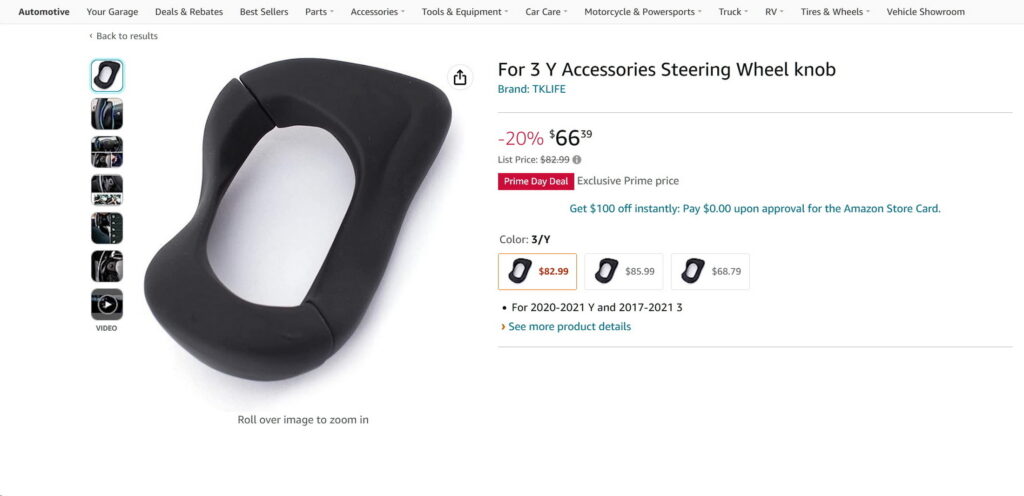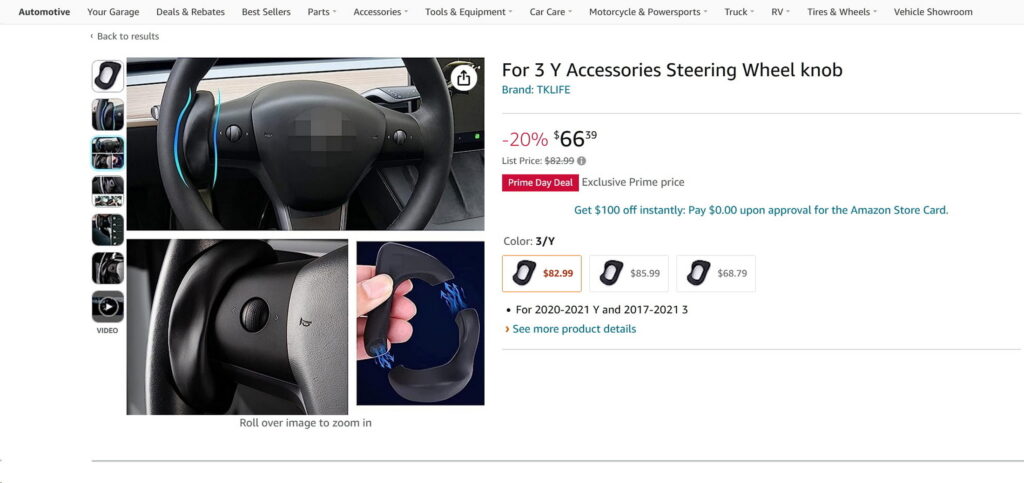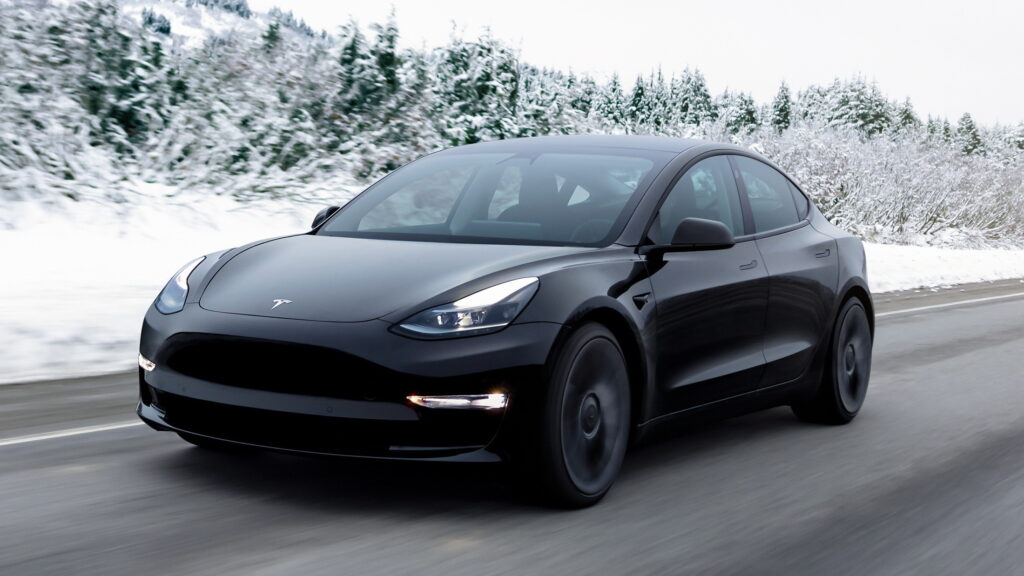A few months ago, a hacker discovered an “Elon Mode” buried deep within the code of a Tesla vehicle that allowed Autopilot to operate without requiring the driver to keep their hands on the wheel. You don’t have to be a hacker to evade Tesla’s attempts to ensure drivers are paying attention to the road, though.
In fact, a number of low-tech products are on sale online, through marketplaces like Alibaba and Amazon. The devices are sold under a number of names, and for a variety of alleged purposes, but are designed to weigh down one side of the steering wheel in order to trick a Tesla into believing that the driver’s hands are on the wheel.
Both marketplaces have said they are attempting to take the products down, according to the Washington Post, but as of Tuesday, July 11, things like the “For 3 Y Accessories Steering Wheel Knob” remain on Amazon. Despite the name, a video contained in the posting shows a driver using the product for the specific purposes of cheating steering wheel nags.
Read: Tesla Hacker Finds Hidden “Elon Mode” Code That Turns Off FSD Nags

Steering wheel checks are one of a handful of tests that Tesla vehicles perform while its advanced driver assistance systems are engaged. Although these types of checks are common in the automotive industry, Tesla’s are notably frequent, leading owners to complain about their vehicle nagging them to keep their hands on the wheel.
However, despite the names, both Autopilot and “Full Self-Driving” are Level 2 autonomous systems, meaning the driver must always have command of the vehicle, and must be ready to step in at any moment to take over driving duties. Despite that, Tesla drivers in particular have been found to abuse the features, with an unsettling number of them falling asleep at the wheel.
While Tesla has taken some steps to remedy this, adding camera-based driver monitoring to ensure that drivers are paying attention, critics continue to object to the way it advertises its ADAS features to customers.
“Elon Musk’s saying it’s supposed to drive itself. That’s what they’re going to hear,” Philip Koopman, a professor at Carnegie Mellon University who studies autonomous vehicle safety, told WaPo. “How do you think they’re going to behave?”
Indeed, it seems that these consumers are looking to create their own “Elon Modes,” despite the hazards that poses for them, and other road users.





